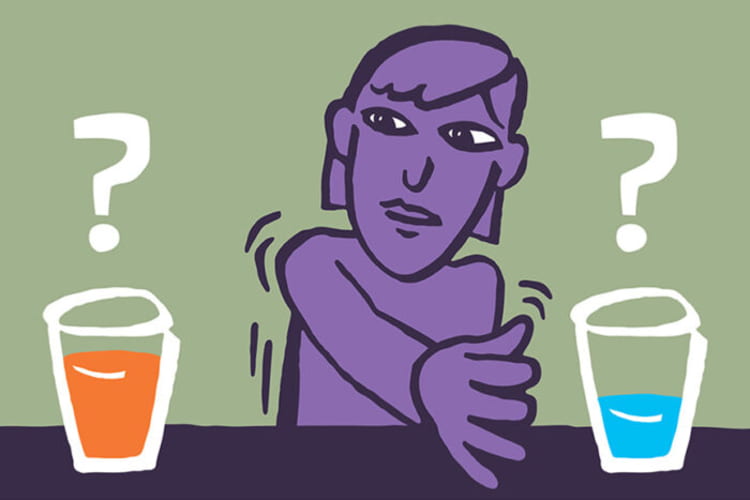When you are faced with a choice — say, whether to have ice cream or chocolate cake for dessert — sets of brain cells just above your eyes fire as you weigh your options. Animal studies have shown that each option activates a distinct set of neurons in the brain. The more enticing the offer, the faster the corresponding neurons fire.
Now, a study in monkeys by researchers at Washington University School of Medicine in St. Louis has shown that the activity of these neurons encodes the value of the options and determines the final decision. In the experiments, researchers let animals choose between different juice flavors. By changing the neurons’ activity, the researchers changed how appealing the monkeys found each option, leading the animals to make different choices. The study is published Nov. 2 in the journal Nature.
A detailed understanding of how options are valued and choices are made in the brain will help us understand how decision-making goes wrong in people with conditions such as addiction, eating disorders, depression and schizophrenia.
“In a number of mental and neuropsychiatric disorders, patients consistently make poor choices, but we don’t understand exactly why,” said senior author Camillo Padoa-Schioppa, PhD, a professor of neuroscience, of economics and of biomedical engineering. “Now we have located one critical piece of this puzzle. As we shed light on the neural mechanisms underlying choices, we’ll gain a deeper understanding of these disorders.”
